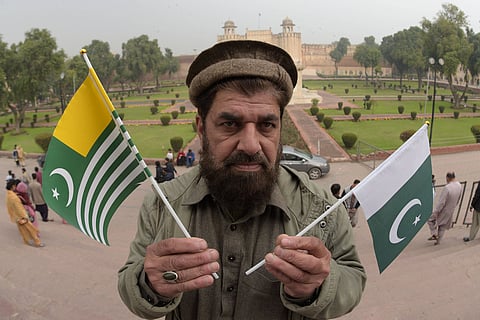The end of the myth that Kashmiris are free in Pakistan
In May 2023, a group of protesters in Rawalakot, in the Poonch district of Pakistan-administered Kashmir, began a sit-in. Their demands were for the regional administration of Azad Jammu and Kashmir to lower the price of electricity and provide a subsidy on wheat flour, prices of which had soared due to high inflation and were symptoms of the politically triggered economic distress that the country has been facing for more than two years. The protesters also asked that the government spend more on Kashmir’s public rather than on the political elites who get their salaries, allowances and perks from Islamabad. When the government failed to respond, many residents stopped paying their electricity bills. From the first week of August onwards, protesters began to burn their electricity bills in public demonstrations of frustration.
This simmering tension lasted a year until, on 8 May 2024, the Joint Awami Action Committee (JAAC), an alliance of civil rights groups in the region, escalated protests, planning a march to the regional capital, Muzaffarabad. The government sent in paramilitary troops, who opened fire and lobbed teargas at protesting crowds, killing at least four people and resulting in the arrests of at least seventy activists. With the protests expected to gain further momentum after the incident, the Pakistan government agreed to provide PKR 23 billion (USD 82 million) in subsidies to the region to pacify protesters.

